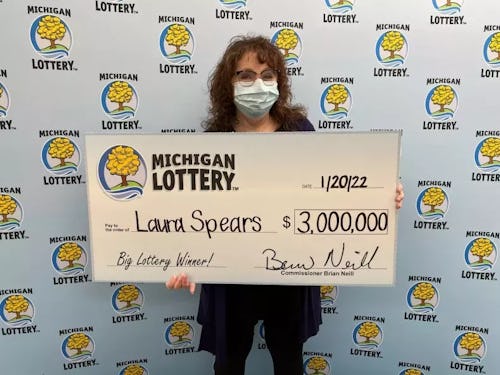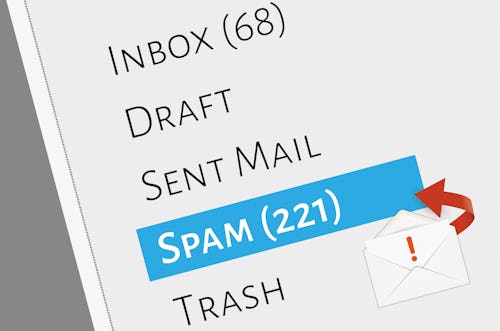
Laura Spears, a 55-year-old from Oakland County, Michigan, didn’t expect to find $3 million dollars when she went looking through her email account’s spam folder. But while she was there, searching for a different message, she found an email that would change her life. Spears had won the Mega Millions on December 31, the Michigan Lottery announced on Friday, and because she had opted to pay an extra $1 for her ticket to earn the “megaplier” upgrade, the $1 million prize turned into $3 million.
Mark as ‘Not Spam’ —
“I saw an ad on Facebook that the Mega Millions jackpot was getting pretty high, so I got on my account and bought a ticket,” said Spears. “A few days later, I was looking for a missing email from someone, so I checked the spam folder in my email account.”
“That’s when I saw an email from the Lottery saying I had won a prize. I couldn’t believe what I was reading, so I logged in to my Lottery account to confirm the message in the email. It’s all still so shocking to me that I really won $3 million!”
Since lotto winnings count as taxable income, she’ll have to fork over more than 30 percent of her earnings. Still, that’s enough for her to retire early.
“I definitely added the Michigan Lottery to my safe senders list just in case I ever get lucky enough to receive another email about a huge prize,” Spears said.

What’s the takeaway?
—
Please, please don’t start clicking links in your spam folder. This issue isn’t that people are ignoring their spam folders; instead, the problem is that major organizations (like, perhaps, the Michigan Lottery) are failing to use authenticated email headers: internet protocols that ensure that the sender you see is an email’s actual sender. Proper use of email authentication (think: cybersecurity acronyms like DKIM, SPF, and DMARC) can prevent incorrect spam classifications like this.







